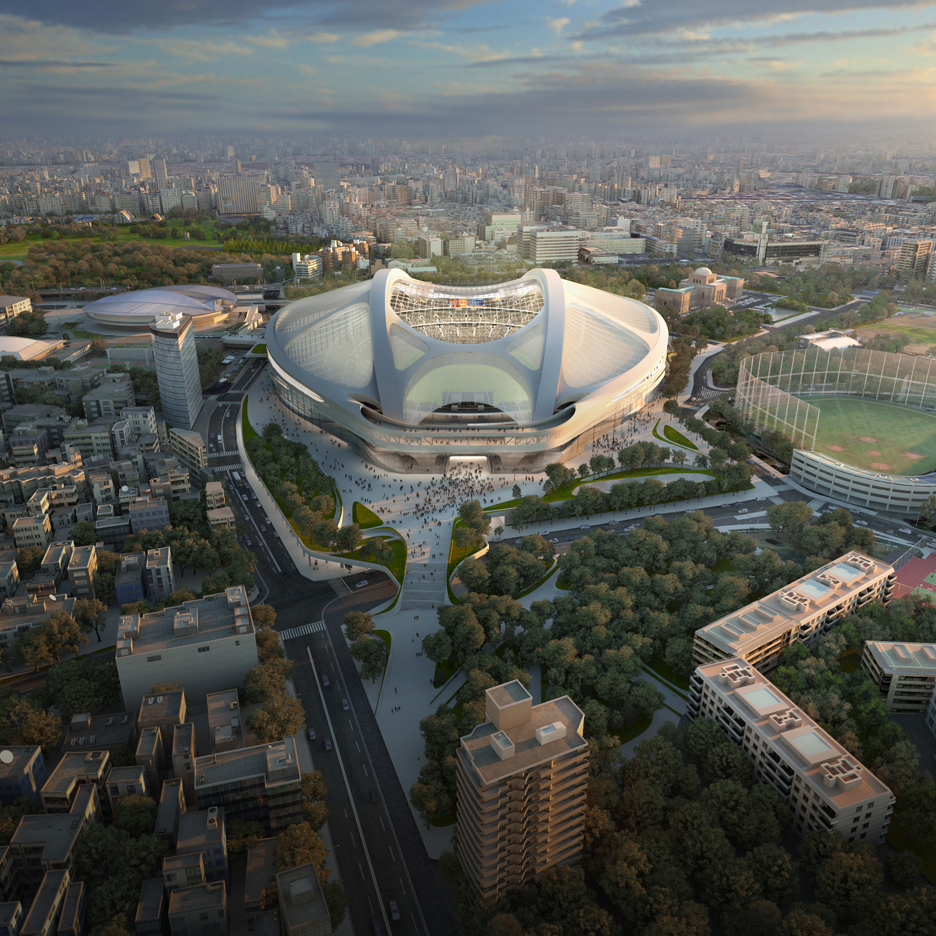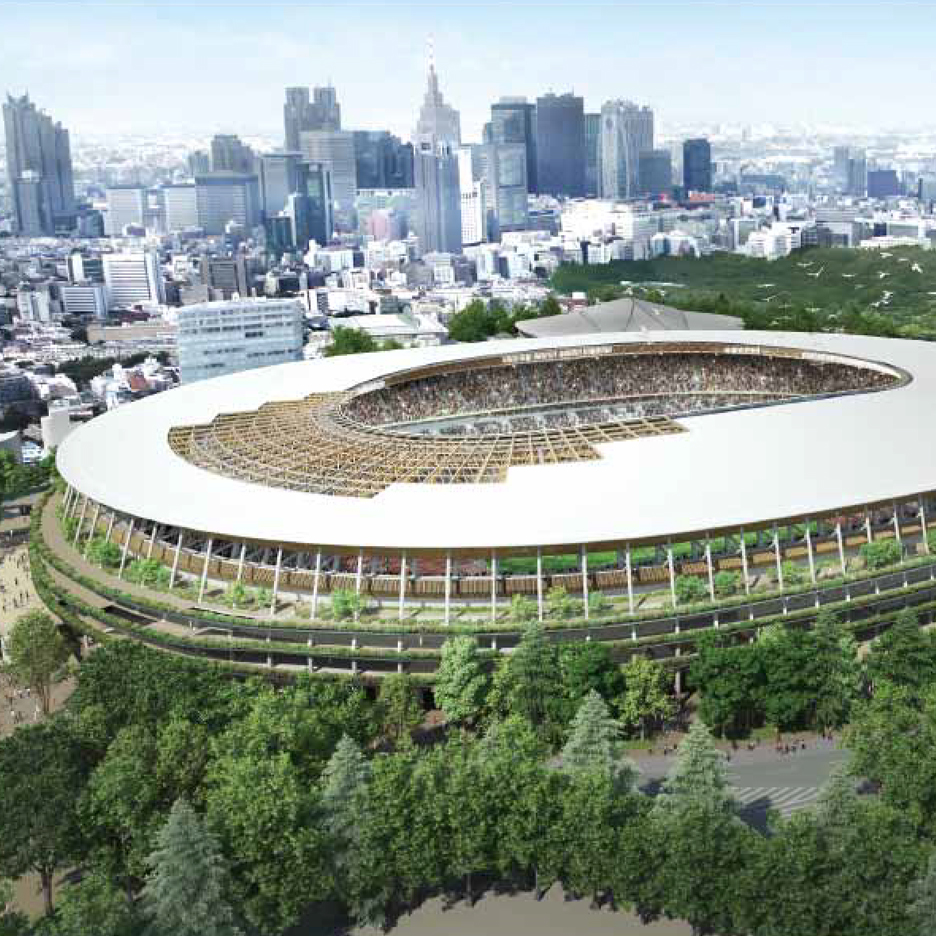Zaha Hadid refuses to hand over copyright for unpaid Japan stadium designs
The organisers of the Tokyo 2020 Olympics are refusing to pay Zaha Hadid for her scrapped stadium design until she gives up all copyright on the project and signs a gagging order.
Zaha Hadid Architects declined the request from the Japan Sports Council (JSC) to sign a revised contract including a new clause requiring the firm to give up the copyright for its competition-winning design, in exchange for an already overdue payment.
The JSC is also demanding that the architect agree to prevent anyone at the firm, including herself, from commenting on the the project now that it has been handed over to Japanese architect Kengo Kuma.

"We can confirm that we received and rejected a written request from the Japan Sports Council to modify our existing contract to allow the transfer of the copyright of the detailed design for Japan National Stadium, owned by ZHA, in exchange for an overdue final payment," said the firm in a statement sent to Dezeen.
"ZHA has also declined a request to sign an additional new contract clause requiring the design team to no longer provide information or comment on the project, in exchange for this outstanding payment being honoured," it added.
Zaha Hadid's firm had been working on the stadium for over two years before being being booted off the job last July in a row over spiralling costs.
It claims to have been chasing overdue fees since October for "months of work carried out by a team of more than 100 architects and engineers in Japan and the UK working for ZHA and many other companies."
The revised agreement – reported by The Telegraph and confirmed by Zaha Hadid Architects – specifies that the stadium's new design team is "allowed to use any product of work... regardless of its copyright".
It also states that the JSC may "use project work freely, without additional payment or restriction (includes alteration and any other use) and mutually agrees that [Zaha Hadid Architects] will consent without objection".
The JSC is refusing to provide payment until the revised agreement is signed.
"We welcome that the JSC has acknowledged the issue of the intellectual property for the fundamental and detailed elements of the stadium design," added Hadid's firm.
"ZHA has submitted a report to the JSC detailing the significant similarities between the structure, layout and numerous elements of the original detailed design for the national stadium for Japan and the latest designs," it continued. "This document will form the basis for the discussions we hope to resume shortly with the JSC to resolve the important issue of the use of valuable design work that is currently the copyright of ZHA and the original design team."

The firm has since sent a letter to Toshiaki Endo, the Japanese minister overseeing the Tokyo 2020 Olympic and Paralympic games, expressing fears that their design would be "exploited" and their "public humiliation" would not be rectified.
"It may be convenient for those who have benefitted from our humiliation to want us to be quiet, but until the matter is publicly addressed, we cannot support a process and project which damaged us so wrongfully," reads the letter, as reported in The Telegraph.
The architecture firm has threatened legal action if its concerns are not addressed.
Kengo Kuma was appointed to take over the stadium project in December, ahead of a rival bid from fellow Japanese architect Toyo Ito. Both architects had openly criticised Hadid's design, claiming it was too big and too expensive.
Hadid followed up the announcement with a statement accusing Japanese authorities and architects of colluding against her, and claiming that Kuma's design had "remarkable similarities" to her own.
Costs for Hadid's stadium began at ¥130 billion (£707.1 million) but rose to ¥252 billion (£1.37 billion) in 2015. The new design team has to work to a revised budget of ¥155 billion (£843 million).